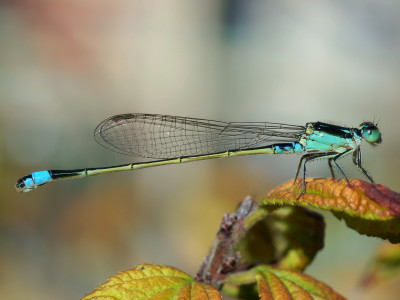Why do researchers point out that birds that use their 'sixth sense' to find food are in danger of losing their habitat?

Animals in the wild use special sensory and crisis detection abilities to find food in the vast wilderness and protect themselves from predators.
Good vibrations: remote‐tactile foraging success of wading birds is positively affected by the water content of substrates they forage in - du Toit - Journal of Avian Biology - Wiley Online Library
https://nsojournals.onlinelibrary.wiley.com/doi/full/10.1111/jav.03243
Hadeda ibises' 'sixth sense' works best in wet soil: new research is a wake-up call for survival of wading birds with this superpower
https://theconversation.com/hadeda-ibises-sixth-sense-works-best-in-wet-soil-new-research-is-a-wake-up-call-for-survival-of-wading-birds-with-this-superpower-228854

The Hadada Ibis is one of the most well-known birds in sub-Saharan Africa, and its English and Japanese names come from its distinctive loud cry that it makes early in the morning. Most of them live near water, such as riverside forests, swamps, and mangroves, and feed on insects, crustaceans, and earthworms.
Du Toit, a postdoctoral researcher at Cambridge University, began his doctoral studies at the Fitzpatrick Institute for African Ornithology at the University of Cape Town, where he has been studying the Hadada Ibis since then. Du Toit's research has revealed that the Hadada Ibis has the ability to detect invisible underground or underwater food by sensing vibrations in the soil or water, a feature shared by many coastal birds such as ibises, known as 'remote antennae.'
It had been previously predicted that the Hadada Ibis likely used remote touch, based on the structure of its beak. The study therefore carried out a series of experiments to test how different sensory cues, such as sound and smell, affect the speed at which the animal detects stimuli. In the experiment, the Hadada Ibis was given a tray filled with soil and earthworms, and a speaker playing white noise was placed next to the tray. In addition, earthworm powder was mixed into the soil, preventing the location of live earthworms from being detected by smell. As a result, neither white noise nor crushed earthworms had any effect on the speed at which the Hadada Ibis found food, leading the research team to conclude that the Hadada Ibis does not use hearing or smell to find food.

Furthermore, to test whether remote sensing could be used, live earthworms that moved around and produced vibrations, and dead earthworms that did not produce vibrations were placed in the soil. The Hadada Tokis found the moving earthworms much faster than the still ones.
The study showed that the Hadada Ibis has an excellent long-range antenna, but on the other hand, Du Toit points out that the Hadada Ibis's long-range antenna is under threat. Long-range antenna, also known as a 'sixth sense' because it can find food in invisible places, is closely related to the moisture content of the soil, according to the study. When testing whether the amount of water added to the soil affects the Hadada Ibis's food search, the Hadada Ibis found earthworms quickly in moist soil and took more than twice as long in dry soil.

The Hadada Ibis has expanded its habitat in South Africa on a massive scale, but previous research had suggested that this was due to the expansion of farms and suburban areas, which led to increased artificial irrigation, which increased the number of waterside areas where the Hadada Ibis lives. However, Du Toit's research has revealed that the Hadada Ibis needs soil with sufficient moisture to detect food, so it cannot survive in drier areas, and it is speculated that the expansion of waterside areas has led to the expansion of the habitat.
Another study conducted by Du Toit showed that the beak structure of the Hadada Ibis is more sensitive than that of other ibises, which have a similar remote antenna. Du Toit points out that species such as the Spoon-billed Sandpiper, which is thought to be even more sensitive than the Hadada Ibis, are at risk of extinction due to changes in soil moisture and dryness due to temperature changes, so the Hadada Ibis's habitat may also decrease.
'The types of senses that water-dwelling birds use to find food, and the type of soil substrate they require, have not received much attention in ecological research for a long time. Further research into bird senses could help protect the Hadada Ibis's habitat,' said Du Toit.
Related Posts:
in Creature, Posted by log1e_dh







